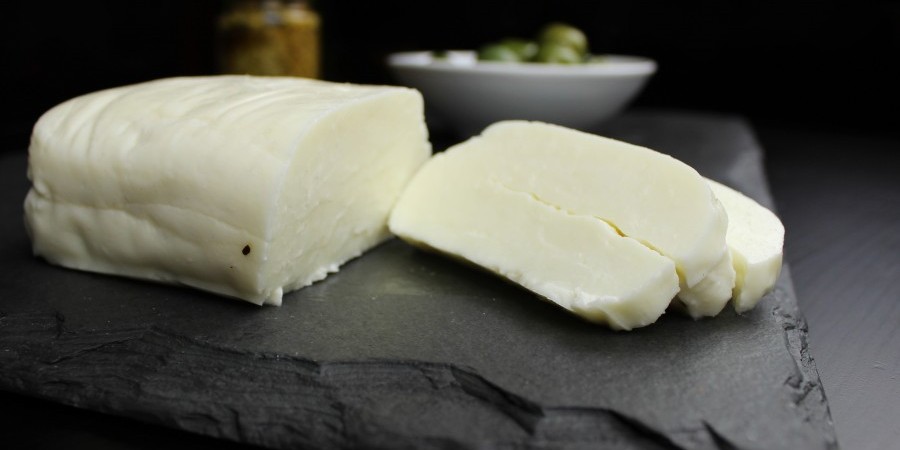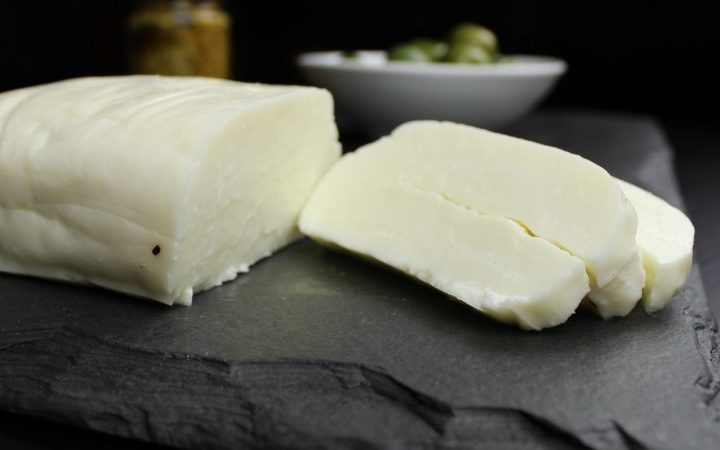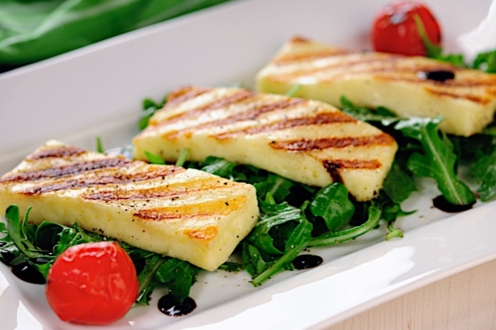While Cyprus’ traditional squeaky cheese is being grilled in courtrooms across the world, the battle over what makes a halloumi is still brewing at home.
The famous white cheese is in for another bumpy ride in the UK as legal battle over a trademark for halloumi is maturing in a London court.
The court case is just one out of 80 cases involving dairy producers around the world trying to register their version of halloumi by employing a number of tricks.
At the same time, an aging battle between the country’s authorities and dairy producers over the ratio of cow’s and goat milk in the mix is reigniting, as a deal between the goat and sheep farmers and dairy producers goes south.
Regarding the legal battlefield in the UK and other international courts, Panayiota Patsali, a senior officer at the Commerce and Energy Ministry, told the Financial Mirror that the ministry is in some 80 court rooms around the world trying to fend off a number of dairy producers from registering a grill type cheese as halloumi.
One such case was reported by Bloomberg, saying that Cyprus is challenging a Hungarian dairy company, Babel Sajt Kft, that wants to register a trademark named “Hadjú Halloumi”.
As confirmed by Patsali, “a UK hearing officer in March had ruled in favour of the Hungarians, finding that halloumi did not have a reputation among a significant portion of the general public and that there weren’t any chances of confusion between the brands”.
She explained that Babel Sajt argued that the name it uses is clearly different from Cyprus’ “Halloumi,” as “Hadjú” is written in big letters above ‘Halloumi’ which is written in smaller letters.
Patsali stressed that if this case is not won by Cyprus’ legal team, it could set the future of Cypriot cheese in the UK in danger, as halloumi products could be pushed off the shelf by other similar cheeses using the word ‘halloumi’ somewhere in their label.
“If lost, the case could set the ground for a number of grill cheeses to displace our halloumi from supermarkets in the UK, encouraging of course other dairy producers with similar ideas,” said Patsali.
She said that Cyprus’ defence in UK courts is based on the argument that grill cheeses like the one produced by Babel Sajt Kft, does not meet the necessary requirements to use the word “halloumi” in their trademark.
Patsali said that Cyprus argues that “halloumi” is a collective trademark, and cheesemakers who use it must meet specific criteria regarding ingredients, provenance and manufacturing.
The soft white cheese often enjoyed grilled, is the second biggest Cypriot export generating some EUR 220 mln a year.
The UK is Cyprus’ largest market for the popular cheese, absorbing 40% of halloumi exports worth around EUR 80 mln a year.
Exports to rise
Cyprus dairy producers have said they expect to yield EUR 300 mln in exports from halloumi by 2023.
The Commerce Ministry’s legal advisors are called to defend this argument built on years of efforts put forward by farmers, dairy producers and the competent authorities, said Patsali.
Nicosia has recently won an important legal battle as it regained its UK trademark for halloumi and is determined to fend-off pretenders to the crown.
However, a long-lasting stand-off between authorities and dairy producers continues on the ground in Cyprus.
Despite agreeing to move forward with protecting the Cypriotness of halloumi as a product of Protected Designation of Origin, there is disagreement on the thorniest issue of the PDO file – how the cheese is made.
The government wants to increase the ratio before 2024, when producers must follow the PDO guidelines, using at least 51% sheep’s and goats’ milk, according to the traditional recipe which was filed with the PDO application with the European Union.
According to a previous government decree, dairy producers would have to increase the percentage of sheep or goat milk to 25% this year and keep increasing by a 6.5% every year until it reaches 51% in 2024.
Faced with a negative reaction from cattle farmers and dairy producers, the government backed down, agreeing to keep the ratio of goat and sheep milk to cow milk at 20-80%, essentially putting aside the PDO file requirements.
Dairy producers were arguing that there is not enough goat milk available to cover the 51% ratio.
The agreement was for dairy producers to buy all available goat and sheep milk from farmers, while increasing the price of a liter by 5 cents immediately and another 5 cents in five years’ time.
However, this agreement also went south, with farmers not accepting contracts drawn up by dairy producers, who wanted to only buy milk produced from Cypriot breeds described in the PDO file, which is the minority of goats and sheep.
Deal is off
In comments to the Financial Mirror, head of the Dairy Producers Association George Petrou explained that this development essentially means that the deal is off and the Agriculture Minister will go ahead with issuing a decree for Halloumi to be made with 25% goat or sheep milk, “a ratio which we will have great difficulty in meeting”.
He explained that the increase of the percentage from 20% to 25% will only generate new problems, since there will not be enough milk to meet the demands of the market.
“We will be forced to limit the production of halloumi whose only ingredient is goat’s and sheep’s milk. This is the only way will be able to meet the requirement for the production of halloumi with 25% goat and sheep milk,” he argued.
Petrou said that authorities are not listening to dairy producers, as their warnings about there not being enough milk in the market falls on deaf ears.
“We have learned from media sources that the government will be going ahead with increasing the goat and sheep milk ratio, without first consulting us,” said Petrou, expressing fears that the ratio of goat and sheep milk will be further increased with decrees to follow.
The chairman of the Dairy Producers’ Association called the authorities and other stakeholders to come together to find a common solution in order to protect Cyprus’ white gold.
He said the threat may not be apparent at the moment, as demand exceeds the capacity of the Cypriot dairy industry, but it will endanger halloumi exports in the foreseeable future.
“We need to see how we can make our brand stronger. We need to unite all the forces and see how to handle the issue. Halloumi is estimated to generate EUR 230 mln in revenue and supports 13,000 families,” he argued.










